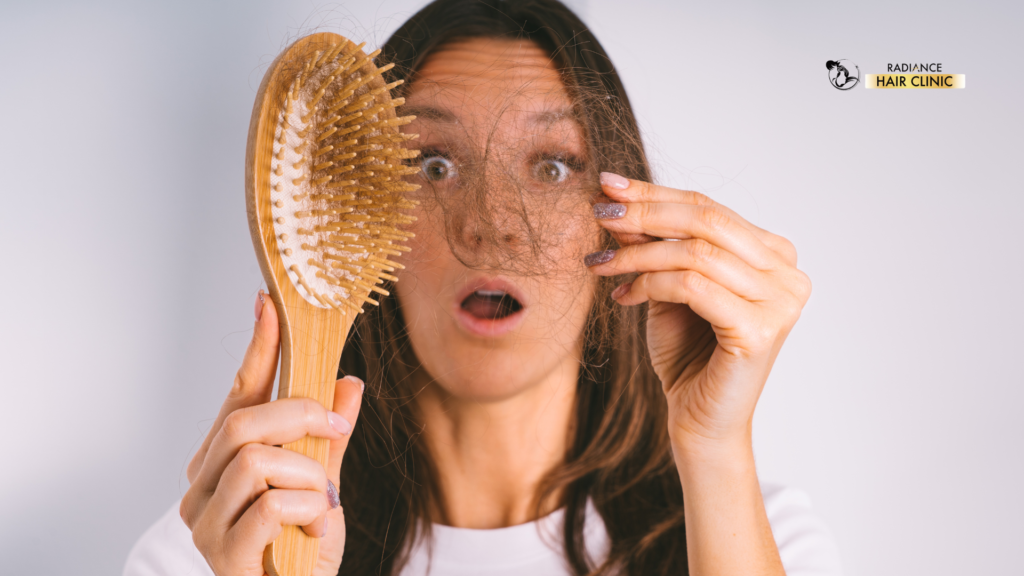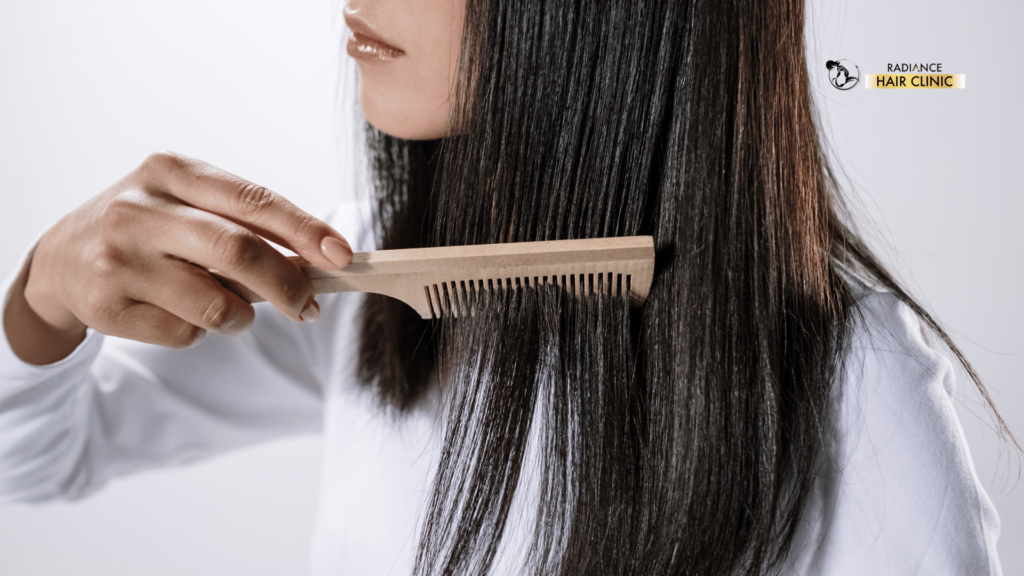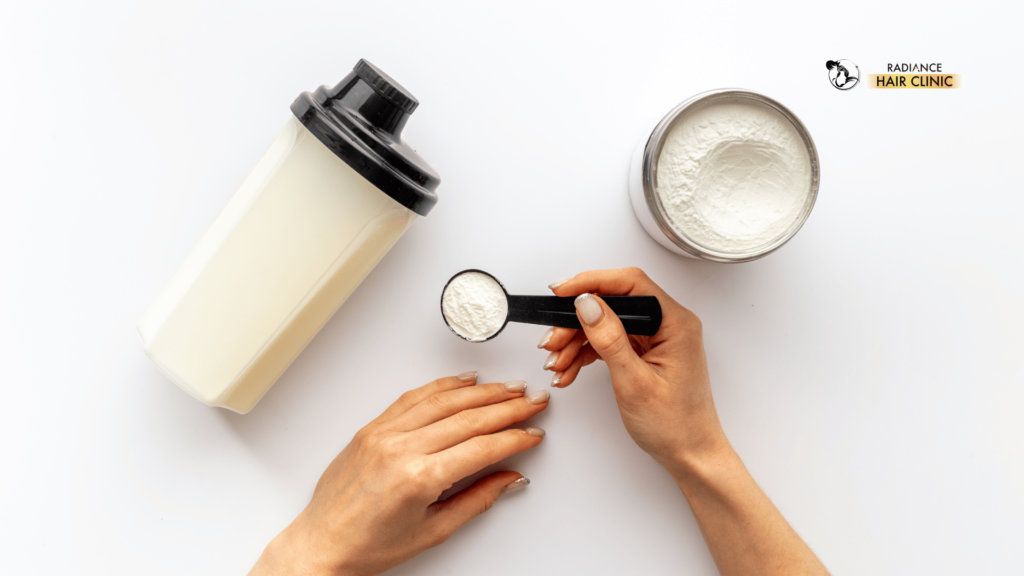Hair fall during winter is a common concern for many people. The cold, dry weather can strip your scalp and hair of moisture, making your hair more prone to breakage and fall. Understanding how to prevent hair fall in winter is crucial to maintaining strong, healthy hair throughout the season. Fortunately, with the right hair care routine, you can protect your hair from winter-related damage and keep it looking its best.
In this guide, we’ll explore several strategies on how to prevent hair fall in winter, covering everything from maintaining proper hydration to using the right products for your hair type. Let’s dive into some simple yet effective ways to keep your hair healthy and full during the colder months.
How to Prevent Hair Fall in Winter
Keep Your Scalp Moisturized
The cold air in winter tends to dry out your scalp, which can lead to dandruff, irritation, and ultimately hair fall. One of the most important steps in learning how to prevent hair fall in winter is to keep your scalp well-moisturized. A dry scalp weakens hair follicles, making them more likely to fall out. Here are some simple tips to keep your scalp hydrated:
- Oil Massage: Use natural oils like coconut oil, olive oil, or almond oil to massage your scalp at least twice a week. This helps to nourish the scalp and improve blood circulation, strengthening hair follicles and promoting healthy hair growth.
- Aloe Vera: Aloe vera is known for its moisturizing and soothing properties. Apply fresh aloe vera gel to your scalp to keep it hydrated and reduce dandruff.
- Avoid Hot Water: As tempting as it may be to wash your hair with hot water during winter, it can strip your scalp of natural oils, leading to dryness and hair fall. Instead, use lukewarm water to wash your hair, and finish with a cold water rinse to lock in moisture.
Choose the Right Shampoo and Conditioner
Using the right shampoo and conditioner is essential when it comes to how to prevent hair fall in winter. Harsh shampoos can further dry out your scalp and hair, worsening the problem. Here’s what you should keep in mind:
- Moisturizing Shampoo: Opt for a mild, sulfate-free shampoo that is specifically formulated for dry or damaged hair. Moisturizing shampoos can help replenish lost moisture and keep your hair hydrated.
- Conditioning Is Key: Condition your hair every time you wash it. A good conditioner helps to seal moisture in your hair shafts, making them more resilient to breakage. Leave the conditioner on for a few minutes before rinsing it out to allow your hair to absorb the nutrients fully.
- Limit Shampooing: Overwashing your hair can strip away natural oils, leading to dryness and hair fall. In winter, try to limit shampooing to two or three times a week to maintain your hair’s natural moisture balance.
Use a Hair Mask or Deep Conditioner
In the colder months, your hair may need extra care and nourishment to combat dryness and brittleness. Incorporating a hair mask or deep conditioner into your hair care routine is an excellent way to prevent hair fall in winter.
- Weekly Hair Mask: Use a hydrating hair mask once a week to provide deep nourishment to your hair. You can either buy a pre-made hair mask or make your own at home using natural ingredients like honey, avocado, yogurt, or banana. These ingredients are rich in nutrients and help to restore moisture to your hair, making it less prone to breakage.
- Leave-in Conditioner: Using a leave-in conditioner after washing your hair can help keep it moisturized throughout the day. This is especially helpful during winter when the air is dry and can sap moisture from your hair.
Protect Your Hair from Harsh Weather
Exposure to cold winds and low temperatures can cause your hair to become dry, brittle, and more prone to falling out. One of the simplest ways to protect your hair in winter is to shield it from the elements.
- Wear a Hat or Scarf: Covering your hair with a hat or scarf when you go outside can help protect it from the cold, dry air. However, avoid wearing tight hats that can cause friction and lead to breakage. Instead, opt for loose-fitting, soft materials like cotton or silk.
- Silk or Satin Linings: Woolen hats and scarves can sometimes create friction, which can damage your hair. To prevent this, try to choose headwear with a silk or satin lining, or wrap your hair in a silk scarf before putting on a wool hat.
Stay Hydrated
Staying hydrated is key to keeping both your skin and hair healthy, especially during the winter months when the air is dry. Dehydration can lead to dry, brittle hair, increasing the likelihood of hair fall. Here are a few tips on how to stay hydrated and prevent hair fall in winter:
- Drink Plenty of Water: Aim to drink at least 8 glasses of water a day to keep your body and hair hydrated from the inside out. Proper hydration helps maintain the health of your scalp and hair follicles.
- Eat Hydrating Foods: Incorporate hydrating foods like fruits and vegetables into your diet. Foods like cucumbers, oranges, and watermelon contain high amounts of water and essential vitamins that contribute to hair health.
Pay Attention to Your Diet
Your diet plays a significant role in maintaining healthy hair and preventing hair fall. Ensuring that your body is getting all the essential nutrients is one of the most effective ways to prevent hair fall in winter.
- Protein-Rich Foods: Hair is made of keratin, a type of protein. Including protein-rich foods like eggs, fish, lean meat, and legumes in your diet helps to strengthen hair and reduce breakage.
- Vitamins and Minerals: Vitamins like A, C, and E, as well as minerals like zinc and iron, are crucial for maintaining healthy hair. Foods such as spinach, nuts, seeds, and sweet potatoes are rich in these vitamins and minerals.
- Omega-3 Fatty Acids: Omega-3 fatty acids are known to promote hair growth and maintain scalp health. Incorporate foods like salmon, walnuts, and flaxseeds into your diet to ensure your hair is getting these essential fats.
Avoid Excessive Heat Styling
Using heat styling tools like hairdryers, straighteners, and curling irons can damage your hair, especially in winter when it is already prone to dryness. To prevent hair fall in winter, it’s best to limit the use of heat styling tools.
- Air Dry Your Hair: Whenever possible, allow your hair to air dry instead of using a hairdryer. If you must use a hair dryer, make sure to use it on the lowest heat setting and keep it at a distance from your hair to minimize damage.
- Use a Heat Protectant: If you need to use heat styling tools, always apply a heat protectant spray or serum to your hair before styling. This will create a barrier and help prevent heat damage.
Avoid Over-Brushing
While it’s important to keep your hair tangle-free, over-brushing can lead to unnecessary hair fall, especially when your hair is already fragile due to the winter weather. To prevent hair fall in winter, follow these tips for gentle hair care:
- Use a Wide-Tooth Comb: A wide-tooth comb is gentler on your hair and helps prevent breakage. Start detangling your hair from the ends and work your way up to avoid pulling and causing stress to the roots. You can use a neem comb. A neem comb offers several advantages that make it a perfect addition to your hair care routine.
- Brush When Necessary: Try to brush your hair only when necessary, and avoid brushing it when it’s wet, as wet hair is more prone to breakage. If you need to detangle wet hair, use a wide-tooth comb and be as gentle as possible.
Take Hair Supplements
If you’re struggling to get enough nutrients from your diet alone, consider taking hair supplements. Biotin, vitamin D, and iron are often recommended for improving hair health and reducing hair fall. Before starting any supplements, it’s always a good idea to consult with a healthcare professional to ensure they are safe and suitable for you.
Regular Trimming
Regular trims help to get rid of split ends and damaged hair, keeping your locks healthier in the long run. Trimming your hair every 6-8 weeks during winter helps to prevent breakage and maintain overall hair health.
Conclusion
Winter can be harsh on your hair, but by following these tips on how to prevent hair fall in winter, you can protect your hair from the damaging effects of the cold weather. From keeping your scalp moisturized and using the right products to maintaining a healthy diet and protecting your hair from harsh elements, there are plenty of ways to maintain strong and healthy hair throughout the season.
Remember, consistency is key when it comes to hair care. By incorporating these practices into your daily routine, you’ll be well on your way to preventing winter hair fall and enjoying a healthy, luscious mane all year round.


